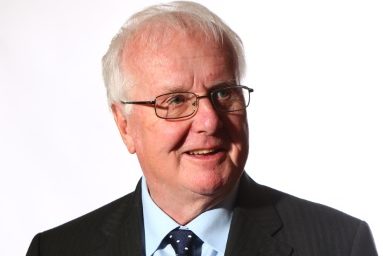Halstead achieves record interim results but warns on Brexit and pandemic issues

Bury-based floorings group, James Halstead, revealed record results in its interim period to December 31, 2020, today, but highlighted problems caused by Brexit and the coronavirus pandemic post-reporting period.
Revenues of £130.45m compared with £130.39m in 2019, and pre-tax profits increased slightly, from £25.2m the previous year to £26m. The 4.25p per share interim dividend is maintained.
Cash at December 31, 2020 stood at £74.4m, compared with £64.3m a year earlier, helped by stock reduction.
Chief executive, Mr. Mark Halstead, said: “I am very pleased to report these improved figures and all credit to our workforce for their efforts in the face of great uncertainty and major challenge. Trading continues to be solid.”
The group said overall demand during the first half has been consistent, and in many markets was significantly higher than anticipated.
Normal business has been affected in areas such as retail and hospitality but others, such as healthcare, continue to be robust.
Since the period end, however, the group admitted that post-Brexit trading suffered “considerable early disruption”.
Chairman Anthony Wild said: “There was confusion among freight forwarders, border control and customers alike and there were inescapable delays.
“Customers, in particular, were unprepared and confused by VAT procedures in their jurisdictions. The situation has improved considerably, but there remain some issues such as EU-sourced goods that are re-exported and attract import duty.”
He also revealed that, in recent months, there have been shortages of basic raw materials that, in conjunction with employee absenteeism, have disrupted production.
There have also been increases in the cost of materials, although production has been able to fulfill all confirmed orders.
The group continues to win new orders around the world. It recently supplied flooring to the Serum Institute of India, in Pune, for expansion of production of the Astra Zeneca AZD1222 vaccine and the ongoing roll-out of the UK vaccination programme offers the prospect of a high degree of normality returning to Halstead’s home market and its production process.
But it warned that the situation in its biggest export market, Europe, remains under review as the COVID-19 virus continues to affect many countries, with restrictions on movement of various degrees and duration.
Mr Wild said: “It remains the case that business is very far from normal. Another example is the ‘lightning’ lockdown in Victoria, Australia, during the Melbourne Open tournament which closed our facility in that state.”
Nevertheless, demand remains consistently solid, he added.
“Projects such as the new Macau Wholesale Market and the Van der Valk hotels in the Netherlands are just two examples of recent projects. We have continued confidence in the performance of our businesses in the second half of our financial year.”
Russ Mould, investment director at Manchester investment platform AJ Bell, said: “Flooring specialist James Halstead continues to quietly go about its business, to remind investors of what really makes a good, long-term portfolio pick.
“Even the pandemic has failed to knock this well run, cash generative and well financed company off its stride. James Halstead has carefully matched last year’s interim dividend, to lay the groundwork for another increase in the full year payment and the extension of a growth streak that dates back to 1977.
“The AIM-quoted company paid out two interim dividends of 2.125p a share last year and it has matched those with a 4.25p interim payment this time around. Patient portfolio builders will now wait to see whether the Manchester-headquartered company can exceed last year’s final distribution of 10p.”

Russ Mould
He added: “The track record of dividend growth is a testament to Halstead’s solid finances. The balance sheet shows £74.4m of cash and no debt, with lease obligations of £8m and a pension liability of £13.2m, for a net cash position of £53m.
“In addition, the company remains very profitable.
“First-half sales came in broadly flat and operating profit rose four per cent, to give an operating return on sales of 20%. Cash conversion was good, too, as James Halstead turned £26.2m of operating profit into post-tax free cash flow of £37.2m, helped by some welcome inflows from net working capital.
“That nearly covers £1.5m in lease payments and the £25m final dividend from last year, even after tax and capital expenditure, with room to spare.
“However, the working capital inflow may not prove sustainable and the economic outlook remains uncertain, leading to the cancellation of major exhibition events and disruption of manufacturing sites as staff self-isolate or take safeguarding measures.”
Mr Mould said: “This is presumably why James Halstead is still treading carefully when it comes to the dividend, as profits and cash flow could still come under pressure this year if the global economy recovers slowly or dips again.
“Last year’s 14.25p-a-share dividend equates to an annual, historic yield of 2.8%. That might not leap off the page at income hunters, but the secret to the investment case for James Halstead has been dividend growth.
“The share price was 0.29p when the dividend growth streak began in 1977, so a 14.25p payment on that in price looks unbelievable now. A consistently rising dividend will tend to drag a share price higher over time and provide the combination of income and capital growth.”




